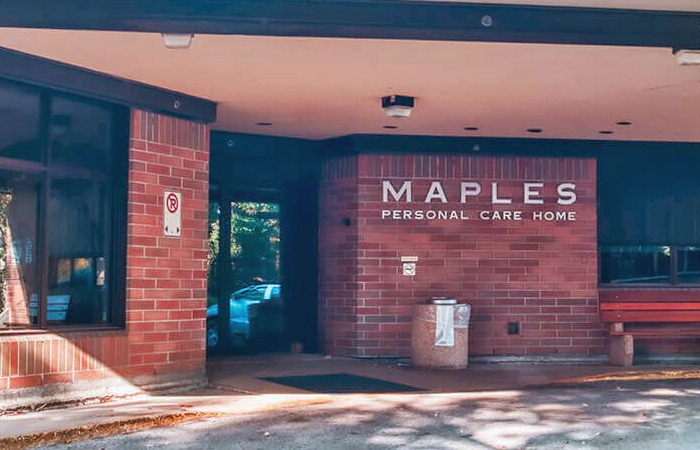Health and Seniors Care Minister Heather Stefanson has announced that the Manitoba government will implement all 17 recommendations outlined in the external review of Maples Long Term Care Home.
“I want to extend my deepest sympathies to the residents, family members of residents and the staff at Maples Long Term Care Home for the terrible COVID-19 outbreak at the site that led to so many illnesses and deaths,” said Stefanson. “While work has already begun on many of the recommendations at the site and regional level, the review makes it clear there is more work to be done to prevent these same issues from occurring at other sites. We are committed to implementing the recommendations in the review and have asked my department to establish an implementation team and have a plan in place within 30 days.”
The final report, written by Dr. Lynn Stevenson, former associate deputy minister of British Columbia Health, reviews the serious outbreak of COVID-19 at the Maples Long Term Care Home and provides a path forward to strengthen the long-term care sector provincewide.
A COVID-19 outbreak was declared at the facility on Oct. 20, 2020, and was declared over on Jan. 12. In that time, 74 staff and 157 residents tested positive for COVID-19, and there were 56 deaths linked to the outbreak. In November 2020, the Manitoba government engaged an expert advisor to review the outbreak of COVID-19 at the Maples Long Term Care Home and provide feedback and recommendations.
The main areas of focus included determining staffing levels, the level of care provided, and the infection prevention and control policies and procedures in place at the site. The review found that while pandemic plans had been prepared and were in place, the site was not prepared for the significant reduction in available staff once they had been exposed to COVID-19 and were required to self-isolate.
The report makes 17 recommendations for Revera, the Winnipeg Regional Health Authority, the Health Incident Command Structure, and Manitoba Health and Seniors Care, along with several recommendations noted as additional considerations.
The minister stated that work began at the Maples Long Term Care Home even before the preliminary findings were received in late December including:
- ensuring additional skills training for security and general labour staff,
- strengthening pandemic staffing plans,
- enhancing care plans for residents in outbreak situations, and
- improving communications with families.
In addition, the regional health authority is making improvements to how it deploys staff with expertise in infection prevention and control.
Work is also underway by Health Incident Command, which includes:
- changing how the planning and operations tables connect to each other and to the long-term care sector as part of the province’s overall pandemic response;
- taking steps to further strengthening infection prevention and control practices;
- promoting safe visitation by designated caregivers and visitors including updating visitation guidelines, mandating the same protective personal equipment for designated caregivers as staff, and implementing outdoor and indoor visitation shelters to support safe family interactions with residents;
- implementing an asymptomatic personal care home staff surveillance rapid testing pilot project;
- developing new staffing strategies including opportunities to redeploy community and continuing care resources to support staffing stabilization in sites with high needs due to outbreaks; and
- improving communications with sites across the province and sharing clinical learnings provincewide.
“While a number of the specific findings have already been implemented, there are other recommendations that need to be implemented not only at Maples, but at other sites and across the health system,” said Stefanson. “Work is underway to develop a plan on how to implement the findings of the review at sites across the province in the longer term as well as how this work can be integrated into the department’s new focus on seniors care, as part of Manitoba’s health system transformation and Manitoba’s Clinical and Preventive Services Plan.”
The minister noted that any plans for the future must address the continuum of care for seniors – from care at home to supportive housing to supports for personal care homes.
“This work is key to ensuring a range of supports are available for seniors, when and where they are needed,” said Stefanson.
This includes looking at options for enhanced supports for caregivers, expanding self- and family-managed care options, building supportive housing capacity, modernizing personal care homes to ensure appropriate care can be provided and working to address staffing challenges. Some of this work is already underway as part of Manitoba’s health system transformation and Manitoba’s Clinical and Preventive Services Plan. As the implementation plan and long-term plans are developed, more information will be shared, Stefanson said.
The minister also noted the pandemic and the findings of the Maples review highlight the need for federal investments in the long-term care sector.
“We know there is work to do to upgrade our facilities to support the care needs of personal care home residents. Many facilities are older, and some still have multiple residents in the same room. This has been an ongoing problem for decades,” said Stefanson. “The Manitoba government is calling on the federal government to take action to support some of our most vulnerable citizens and work with us to increase funding under the Canada Health Transfer and develop long-term funding agreements to support seniors care across the province.”
To review the full review of the COVID-19 outbreak at the Maples Long-Term Care Home, visit gov.mb.ca.


